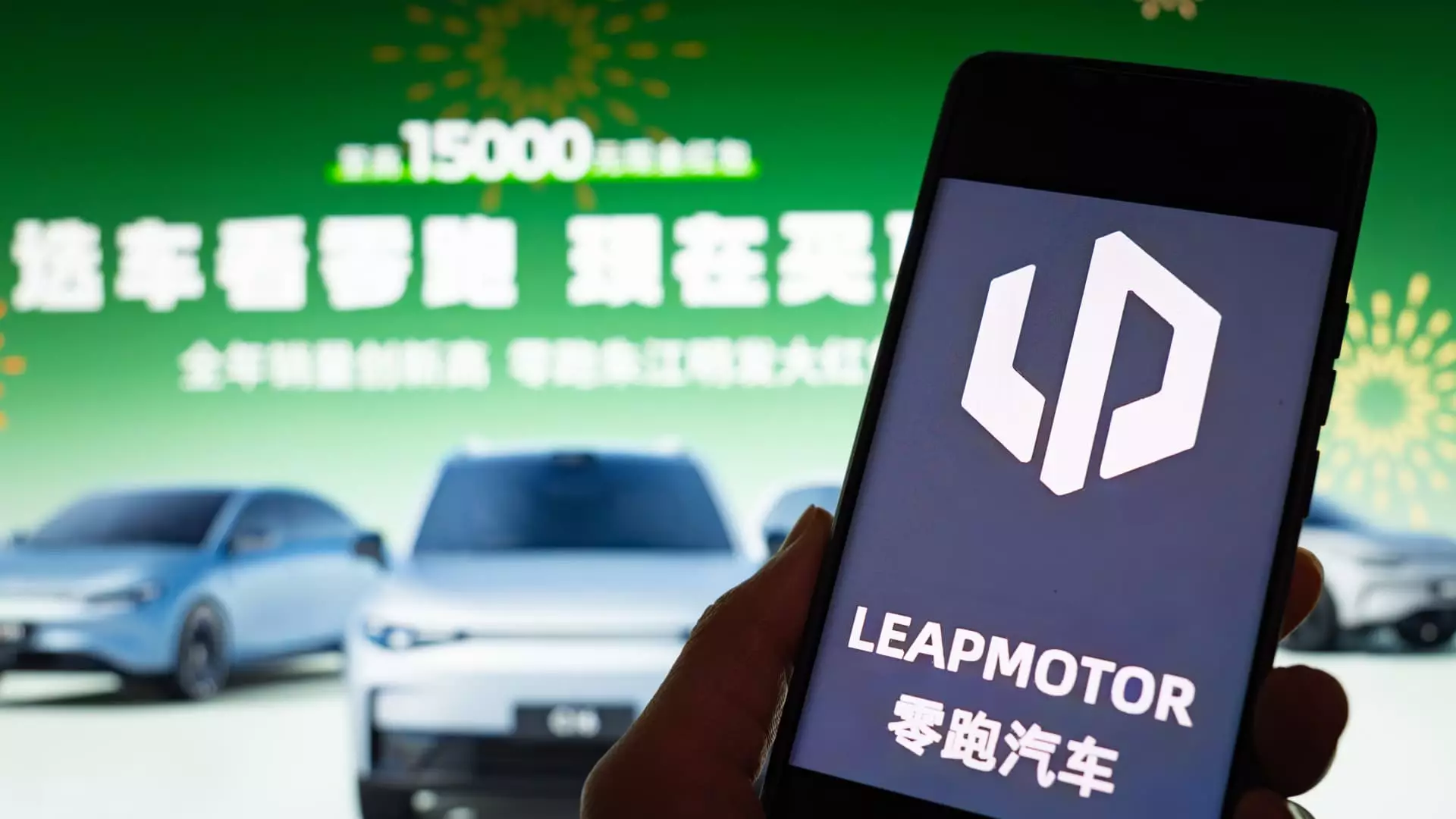In May, the Chinese electric vehicle (EV) scene witnessed a remarkable display of growth as Leapmotor and Aito set new records for vehicle deliveries. Leapmotor, under the auspices of Stellantis, reported a staggering 45,067 deliveries, marking an impressive 148% increase year-on-year. This meteoric rise can be attributed to the launch of their updated C10 model, a visually striking mid-sized SUV boasting a competitive starting price of 122,800 yuan (approximately $17,045). The market’s response was nothing short of extraordinary, with over 13,000 units of the C10 flying off the shelves during the same month.
In parallel, Aito also made headlines by achieving an impressive 44,454 vehicle deliveries. This achievement coincided with the official launch of their ultra-luxury sedan, the Maextro S800, priced at 708,000 yuan. Aito’s integration of Huawei technology seems to resonate well with consumers, enabling the brand to carve a niche in the competitive terrain of electric mobility.
BYD: The Unyielding Giant
While newcomers like Leapmotor and Aito made waves, BYD, China’s EV heavyweight, demonstrated its resilience by maintaining a significant market presence with 376,930 vehicles sold in May. This figure signifies an annual increase of 14.1%, showcasing BYD’s ongoing dominance amid a market characterized by fierce competition. Furthermore, the automaker initiated price cuts on 22 models, strategically lowering the price of its Seagull hatchback by 20% to 55,800 yuan, a move that sent ripples through the stock prices of other Chinese automakers.
However, the aggressive pricing strategy has not come without controversy. BYD faced scrutiny over allegations of pressuring dealers like Jinan Qiansheng regarding cash flow issues, claims which were firmly refuted. This complex landscape raises concerns about the sustainability of such pricing cuts, echoing fears reminiscent of the Evergrande crisis in the real estate sector, which left a significant mark on the economy.
Challenges for Established Players: Xpeng and Others
Despite the success of the emerging players, established firms like Xpeng are grappling with mixed results. In May, Xpeng’s deliveries dipped to 33,525 from 35,045 the previous month. However, when viewed through a broader lens, Xpeng celebrated an extraordinary 230% growth year-on-year, highlighting its ability to adapt and persevere. On May 28, the introduction of the Mona M03 Max and Plus models at competitive price points of 129,800 yuan and 119,800 yuan, respectively, reflects Xpeng’s commitment to innovation amidst turbulent market conditions.
Meanwhile, Xiaomi, best known for its smartphones, also ventured into the EV space, delivering over 28,000 vehicles, echoing last month’s performance. The anticipation surrounding the launch of its new luxury SUV, the YU7, further illustrates the brand’s foray into a market that blends technology with transportation.
Other Players Strive for Distinction
While the leading brands are basking in the limelight, other startups like Li Auto and Zeekr are cautiously navigating through the pricing war. Li Auto’s 40,856 vehicles delivered in May represents a modest year-on-year growth of 16.7%. Conversely, Zeekr managed to deliver just 18,908 vehicles, showcasing a meager 1.6% increase. Despite their attempts to stand out through initiatives such as free driver-assistance technology, the competitive pressure persists, underlining the struggles faced by those not among the top tier.
Nio, another well-known entity, experienced a decline in May deliveries, totaling 23,231 vehicles. This figure reflected a drop from previous months, although a year-on-year growth rate of 13.1% still indicates potential for future recovery. Notably, Nio’s family-oriented brand, Onvo, delivered 6,281 units, marking a significant achievement for the segment.
Future Outlook: A Global Perspective
As competition escalates within China’s borders, manufacturers are eyeing potential expansion into international markets. However, tariffs imposed by the European Union and the U.S. pose significant challenges. The focus seems to be shifting towards emerging markets, such as those in Africa, signaling a strategic pivot in a rapidly evolving industry. BYD’s recent foray into Benin exemplifies these aspirations, hinting at the next chapter in the global EV landscape.
With electrification at the forefront of technological advancement, the ability of these manufacturers to innovate and adapt will determine their success in both domestic and international arenas. The battle is not just for numbers; it is for the future of mobility.


Leave a Reply